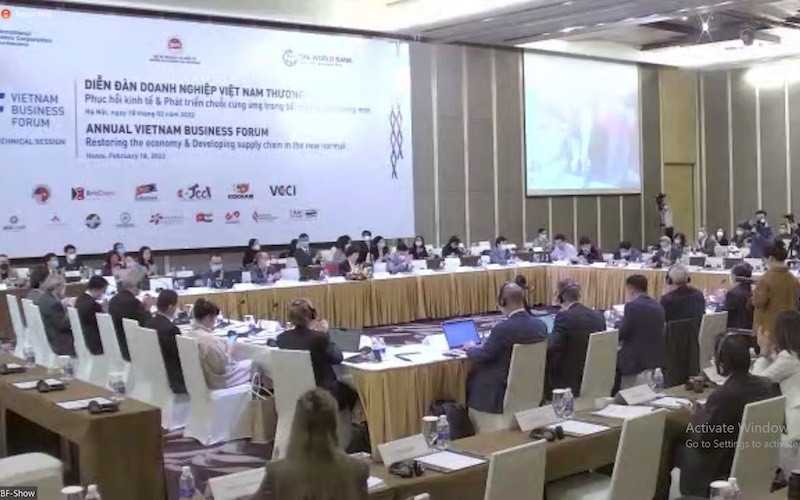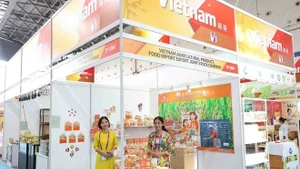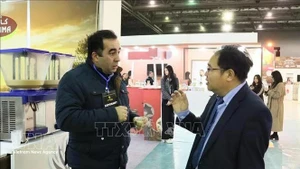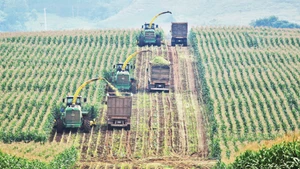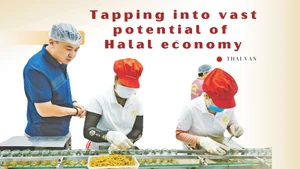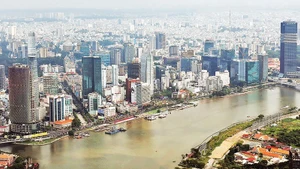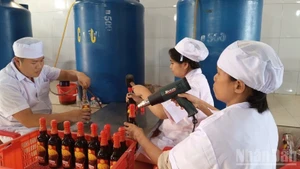Whitehead underlined the need for the agricultural sector of the world in general and Vietnam in particular to renovate, with farmers becoming investors in the field.
He said that large-scale farmers should stay in office and check all information provided through sensor systems and advanced technologies to monitor the use of water, fertilizer, animal feed and environmental impacts from their production activities.
According to Minister of Agriculture and Rural Development Le Minh Hoan, the agricultural sector will focus on developing circular agriculture to minimise waste and environment impacts, improve productivity and shorten supply chains.
Circular agriculture focuses on using minimal amounts of external inputs, closing nutrients loops, regenerating soils, and minimising the impact on the environment. It will be the key to the effective management of agricultural resources, reducing resource requirements as well as ecological footprints of agriculture.
Hoan said that in the future, the ministry will prioritise the effective management and use of water resources, mitigating the effects of drought and salinity, especially in the Mekong Delta region. At the same time, it will strengthen the monitor over climate change and its impact on weather patterns, while developing smart agricultural systems through digital transformation, supervising the traceability of safe food. It will give opportunities to domestic and foreign enterprises to participate in the global agricultural supply chain, while working to enhance the social and environmental responsibility of foreign-invested firms, and focusing more on sustainable agricultural activities, according to the minister.
At the event, Whitehead showed his support to priorities given by the Vietnamese Government when actively engaging in the implementation of the UN Sustainable Development Goals (SDGs).
He stressed the significant role of a developed and sustainable agricultural sector to the realisation of the goals in poverty reduction, nutrition improvement and increasing people’s income.
The Ministry of Agriculture and Rural Development has set a target of bringing Vietnam into world top 15 countries with advanced agriculture and top 10 countries having modern agricultural processing sector.
Last year, the Vietnamese agricultural sector overcame many difficulties to maintain growth in exports of many products in both volume and value. In the first 10 months of 2021, export value of agro-forestry-fisheries productd was estimated at 38.8 billion USD, up 13.1 percent over the same period in 2020, which was close to the target of 44 billion USD for the whole year.
The Government has set a goal of boosting the agricultural sector's recovery and development. However, along with COVID-19, climate change and saltwater intrusion are among factors affecting the target.
The VBF Agri-Business Working Group recommended that Vietnam should strengthen its logistics capacity and the management of supply chains, not only for the domestic agricultural sector to engage in the global supply chain but also to promote the effective circulation of goods and materials inside the country.
Established in 1997, VBF is a regular and high-level channel of communication between the business community and Vietnamese Government.
